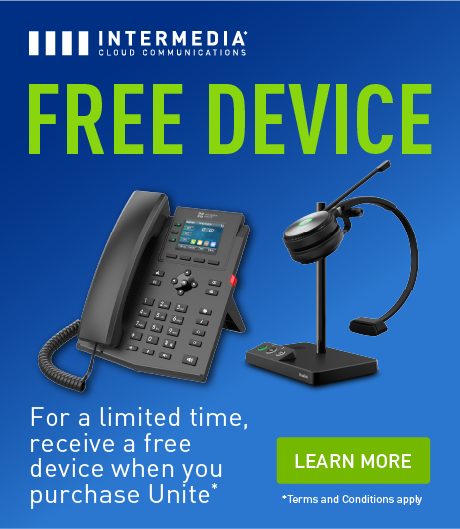- Modern customers are increasingly looking to interact virtually, making contact centers more essential than ever for businesses. For the best results, companies have to decide which setup works best and helps them deliver excellent customer service.
Communications providers now offer many options. Could a hosted contact center fulfill your needs, or is there something better?
Review this guide to hosted contact centers to determine if one will work for you.

Key Takeaways:
- A hosted contact center refers to any type of off-site communications software for customer service agents.
- Single-tenant hosted contact centers work best for companies that need maximum control without the infrastructure of an on-site call center.
- Cloud contact centers are usually the best form of a hosted contact center for small and medium-sized businesses.
What Is a Hosted Contact Center?
A hosted contact center is an off-premises platform that a communications provider manages for your company. In other words, instead of maintaining your own equipment and software at your business’s location, a vendor “hosts” it for you somewhere else.
People tend to equate cloud contact centers with hosted contact centers, but these services are not always the same. The reason is that while all cloud contact centers are hosted platforms, not all hosted platforms are completely on the cloud.
The term “hosted contact center” usually refers to what industry professionals call a “single-tenant” operation. “Single-tenancy” signifies that only one client is using the software at a time.
The idea is similar to a tenant who rents a property, when a single individual or entity rents the entire location for themselves. An example is someone who rents a house as a residence or a corporation that leases an entire office building for their operation.

What Is the Difference Between Cloud and Hosted Contact Centers?
A cloud contact center is a hosted communications platform that is typically multi-tenant software as a service. An organization can subscribe to the communications service and use its features from any location. Providers also refer to cloud contact centers as a “contact center as a service,” or CCaaS.
In contrast to a single-tenant hosted contact center, cloud contact centers are always multi-tenant. A multi-tenant setup allows a customer to use only as much of the service as necessary. The arrangement is like a person who only leases a portion of an office building and shares the address with others.

Why Are Traditional Call Centers Less Popular?
Traditional call centers handle sales and customer service from a single location with a local private branch exchange. The setup requires the installation of physical phone lines and extensive hardware.
Setting up an in-house analog system takes substantial time and expense. Also, a call center may only be able to handle voice calls. Integrating email, live chat, video calls, and instant messaging into the system can be complex.
What Are the Advantages and Disadvantages of a Hosted Contact Center?
Any hosted contact center is superior to a traditional call center because a business doesn’t have to install equipment and software. The provider is a host with everything ready to go and can set things up in a fraction of the time and cost.
In addition, a hosted contact center usually has omnichannel communications as a standard feature. Instant messaging, email, video calling, faxing, and online chat work together under a single platform. This combination simplifies things and can eliminate the need to work with numerous vendors.
However, a single-tenant hosted contact center costs more than a full cloud solution because you tie up the entire platform as the only user. You likely have to invest more to maintain the solution as well. These hosted contact centers also have limits on scalability and cannot expand or scale down operations according to seasonal demand or changes in your business.
What Are the Benefits of a Cloud Contact Center?
A cloud contact center as a service improves upon hosted contact centers with greater cost savings and flexibility. Cloud contact centers allow you to access all the features of other hosted solutions with less of a commitment or upfront investment.
Cloud centers have few disadvantages. The only reason a business would opt to use a single-tenant hosted contact center or a traditional call center is that the company requires a high level of control.
Often, this comes down to compliance, regulatory, or privacy concerns. Fortunately, as a top communications provider, Intermedia can meet all a company’s requirements for data security and regulatory compliance.
How Do You Decide Which Contact Center Is Right for You?
Whether you use a traditional or hosted contact center comes down to the level of supervision you require and what you can afford. Cloud contact centers usually offer the best of all worlds.
Very few businesses truly need a traditional call center or a single-tenant hosted contact center. Small and Medium Businesses and even large corporations can fulfill their customer service needs with a cloud contact center. Discussing your concerns with a professional communications provider can help you make the right choice.
What Features Do Businesses Need in a Contact Center?
A multi-tenant cloud-hosted contact center should have specific features to boost your productivity and deliver top-tier service. Ensure your solution has:
- Agent scheduling and quality assurance
- Interaction analytics
- Omnichannel routing
- A user-friendly interactive voice response solution
- An agent evaluator
A contact center should also integrate with your company’s unified communications software for internal calls and communications.
Which Provider Has the Cloud-Hosted Contact Center for You?
A hosted contact center that runs completely in the cloud is the premier contact center solution and is easy to set up. Intermedia has three decades of solving businesses’ communications needs and can help with yours. Contact our team today to learn more.
May 30, 2023
Explore other posts on these topics: Business interest Contact Center Unified Communications






